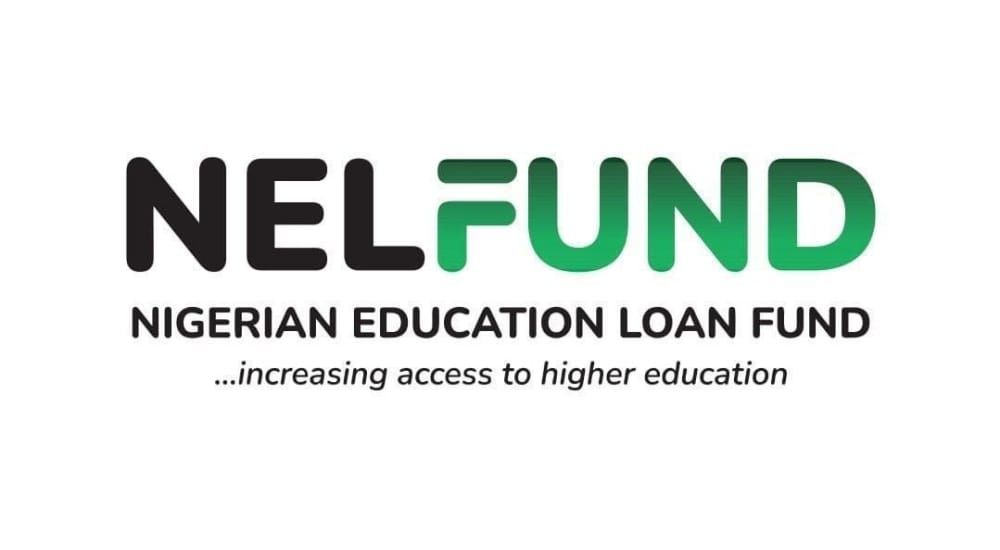When the Nigerian Education Loan Fund, better known as NELFUND, was unveiled, it landed like a spark in a dry forest of despair. It brought a glimmer of hope, like a bold attempt to democratise access to higher education in a country where tuition fees are a barricade and scholarships are too few, too politicised, or too elitist. The idea was simple: interest-free student loans, disbursed through an automated and digitally tracked platform with zero human interference. For students who have long watched their dreams deferred by poverty, this was more than a policy; it was a lifeline. For many first-generation undergraduates, it promised to end the humiliating routine of begging relatives, hawking phone cards or pausing degrees. The phrase “game-changer” was on everyone’s lips.
But hardened by history, Nigerians know that nothing bright survives long in a system riddled with rot. Almost immediately, allegations swirled that money had already begun to vanish from the scheme. Some universities allegedly misappropriated student loans by making illegal deductions from NELFUND student loans.Certain university officials are taxing loans given to students for their selfish gain. NELFUND swiftly dismissed the reports as reckless misinformation. Still, the damage was done. In a country where corruption is both epidemic and endemic, citizens don’t wait for audits or court rulings. They trust their gut. And their gut tells them that anything involving public money is already compromised. Nigerians know too well that even the most visionary programmes can be bled dry by the country’s stubborn corruption crisis.
This instinct isn’t paranoia; it’s pattern recognition. Nigeria’s corruption problem is not just a matter of lack of transparency or stolen funds. It’s a deeply embedded culture of impunity where influential individuals manipulate public institutions like personal ATMs and emerge unscathed. From misallocated security votes to inflated procurement contracts, Nigerian public life is littered with episodes in which influential actors, politicians, regulators, and even some law enforcement agents, mishandle or misappropriate funds with little fear of sanction. Often, officials caught in massive scandals are celebrated months later as elder statesmen or traditional title holders. Investigations go cold. Probes fizzle. Court cases drag on for years without resolution. It’s not just about the looting; it’s the sense that nothing will ever happen to the looters. This pattern breeds a sense that looting the public purse is not a crime but a career path.
But the very scale that makes NELFUND transformative also makes it attractive prey. Experience shows that dedicated accounts can be hacked, payment queues quietly rerouted, and datasets tampered with in return for kickbacks. When such manipulation occurs in education finance, the damage is generational: courses are abandoned, research labs fall silent, and an already skills-starved economy stumbles further. In effect, stealing student loan funds is stealing the country’s future.
The corruption culture has now come under sharp focus again, this time through the jaw-dropping revelations from the Nigerian National Petroleum Company Limited (NNPCL). Since 2021, nearly $3 billion has been earmarked for “quick-fix” refurbishments of the country’s three state-owned refineries in Port Harcourt, Warri, and Kaduna. The promises were grand. Press conferences were held. Cameras rolled. But within weeks of their so-called resumption, the refineries ground to a halt. Warri shut down entirely within a month; Port Harcourt barely sputtered at less than 40% capacity. Kaduna never really started.
Then came the real thunderclap: the EFCC launched sweeping investigations into the use of the funds. Three managing directors were arrested, and ₦80 billion was allegedly found sitting in the personal accounts of one of them, whether it is true or not, this raises a red flag, especially against the background of trillions of Naira spent on rehabilitation of non-functional refineries. Thirteen senior executives, including former Group CEO Mele Kyari, were named in official documents. The probe’s scope is vast, touching every level of NNPCL’s leadership during the disbursement period. Energy experts were not surprised. They had long warned that the televised recommissioning ceremonies were theatre, not substance. One described it as “a charade.” And now, that assessment appears tragically accurate.
The episode has become a national morality play: billions vanish, steel tanks fall silent, workers fume, and consumers pay more—and, until those arrests, few insiders expected real consequences. Against that backdrop, it is obvious why a digital student-loan platform, no matter how cleverly coded, can feel one scandal away from derailment.
The parallels between this refinery disaster and the looming threats around NELFUND are unmistakable. Both involve essential national priorities, energy and education, and require vast public investment. Both were launched with great fanfare. And both operate in a governance ecosystem that rewards mismanagement and punishes transparency. The refinery funds went up in smoke, quite literally. If the structural weaknesses aren’t addressed, NELFUND could follow the same path, and we must prevent that from happening.
The implications of corruption and impunity are glaring. Loan diversion, illegal taxing, or misallocation limits enrolment, widens inequality, triggers brain drains, and hobbles innovation. Refinery non-performance sustains import dependency, drains foreign exchange, and keeps fuel prices volatile; budget overruns divert funds from health, roads, and digital infrastructure. Each scandal deepens cynicism; citizens disengage from civic processes, fuelling voter apathy and social unrest. Legitimate businesses face distorted markets, and connected rivals bend rules without penalty.
Every administration promises a clamp down. State anti-graft agencies trumpet arrests and asset forfeitures, yet the average citizen seldom sees a powerful individual serve meaningful jail time or make full restitution. Small wonder opinion surveys in 2024 repeatedly show that Nigerians believe corruption is worsening. The chorus of disappointment grows louder each time a high-profile investigation fizzles or a suspect circles back into public office.
President Bola Tinubu has acknowledged the crisis, using his May Day address to decry corruption as a force that enriches the few at the expense of the many. He vowed to dismantle the “structures of greed.” The rhetoric was strong, the delivery confident — but it lacked detail. There is no clear plan, new legislation, or timelines—just more words in a country drowning in them. For a public that’s seen too many commissions, too many promises, and too few results, the speech offered more comfort than clarity.
This is the core of the Nigerian paradox: a nation bursting with brilliance, talent, and ambition, stymied by a political class addicted to extraction. Students are not looking for pity. They want a fair shot , the right to learn, grow, and compete globally. The NELFUND initiative could be the bridge between inequality and opportunity, between hopelessness and aspiration. But for that to happen, it must be protected from the same forces that crippled the refineries and tainted so many national programmes before it.
There are ways forward. Swift justice is one. No more endless adjournments or slap-on-the-wrist sentences. Special courts for corruption, with strict 180-day limits, could start to change the game. So could real-time transparency, dashboards that show every Naira disbursed through NELFUND, publicly accessible to all. Digital systems should be strengthened, with blockchain-backed audits making tampering nearly impossible. Whistle-blowers must be protected and rewarded, not punished. Above all, funding releases must be tied to actual, measurable outcomes, student enrolments, graduation rates, and employment stats. No more blank cheques.
The Minister of Education, Dr Tunji Alausa, deserves commendation for his proactive response to the alarm raised about unauthorised deductions by some university officials on funds related to NELFUND loan disbursement. By initiating an independent investigation with support from the Athena Centre, the Minister has demonstrated strong leadership and a clear commitment to addressing corruption as a significant threat to widening educational opportunities. The Athena Centre for Policy and Leadership is partnering with the Federal Ministry of Education to improve transparency and accountability in Nigeria’s student loan scheme (NELFUND). This partnership includes launching a compliance-tracking initiative, an Annual University Transparency Index, and technical support for universities to maintain open-portal systems for loan disbursement and monitoring. The signalling is proper and needs to be supported. We ask for a transparent investigation, and findings should be made public.
It’s easy to become numb. Scroll past the headlines and shake your head. But apathy is the oxygen of impunity. If the NELFUND student loan scheme fails, if it is captured, corrupted, or abandoned , it won’t just be a policy failure. It will be a national betrayal. It will signal that even the most promising reforms are no match for Nigeria’s machinery of plunder. And yet, the possibility remains. With enough pressure, vigilance, and political will, NELFUND could be a game-changer and a turning point. A moment when Nigeria chose a different path. A moment when the future stopped being stolen, and finally started being built.
Nigeria’s greatest assets are neither crude oil nor rare metals but its people, especially the millions of youths whose aspirations depend on credible institutions and fair opportunities. Programmes like NELFUND can unlock that human capital, but only in a governance environment where corruption is costly and impunity impossible. The refinery scandal provides a cautionary tale; NELFUND offers a chance for redemption. If the country can prosecute wrongdoers swiftly, embed transparency technologically and refuse to tolerate “business as usual,” it will signal that public money is once again public, not private. The student loan initiative may yet fulfil its promise—lighting a path out of systemic dysfunction toward shared prosperity and democratic renewal.





